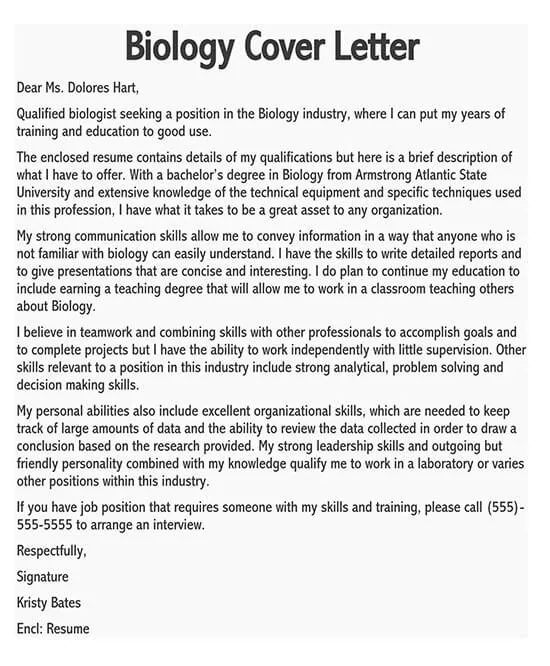Crafting a Winning Biology Cover Letter
A well-crafted biology cover letter is your first opportunity to make a positive impression on a potential employer. It’s more than just a formality; it’s a chance to showcase your personality, skills, and passion for biology. This guide will walk you through the essential components of a compelling cover letter, helping you stand out from the competition and increase your chances of landing your dream job in the field of biology. Remember, your cover letter is a crucial piece of your application package, alongside your resume. A strong cover letter complements your resume by providing context and demonstrating your genuine interest in the specific role and the organization.
Understanding the Purpose of a Biology Cover Letter
The primary purpose of a biology cover letter is to introduce yourself and your qualifications to a prospective employer. It serves as a personalized introduction, going beyond the basic information presented in your resume. Your cover letter allows you to elaborate on your skills, experiences, and accomplishments, demonstrating how they align with the requirements of the job and the needs of the employer. It also offers an opportunity to express your enthusiasm for the specific position and the organization, showcasing your genuine interest. The goal is to persuade the hiring manager that you are the ideal candidate for an interview.
What to Include in Your Biology Cover Letter
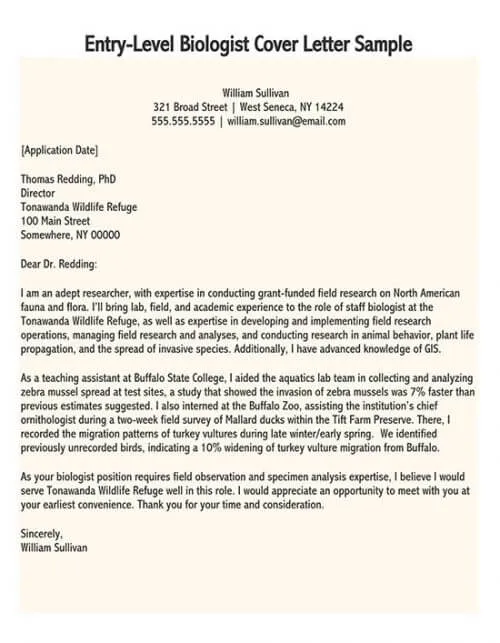
Your biology cover letter should contain several key elements to effectively communicate your qualifications and interest. Each section plays a vital role in painting a comprehensive picture of you as a candidate. From the contact information to the closing, ensuring you include these sections will help your letter stand out and showcase your interest in the role.
Your Contact Information and the Date
Start with your full name, address, phone number, and email address. This information should be clearly displayed at the top of the letter, ensuring the hiring manager can easily contact you. Include the date you are writing the letter, which is typically placed below your contact information or just below the recipient’s information. Using a professional email address is also key. Avoid using casual or unprofessional email addresses, as this can undermine your credibility.
Addressing the Hiring Manager
Whenever possible, address the hiring manager by name. Research the company and find the name of the person responsible for hiring. This shows initiative and a genuine interest in the position. If you cannot find a specific name, use a professional salutation like “Dear Hiring Manager” or “Dear [Department Name] Hiring Team.” Avoid generic greetings, such as “To Whom It May Concern,” as they can make your letter seem impersonal and show a lack of effort.
Opening Paragraph that Grabs Attention
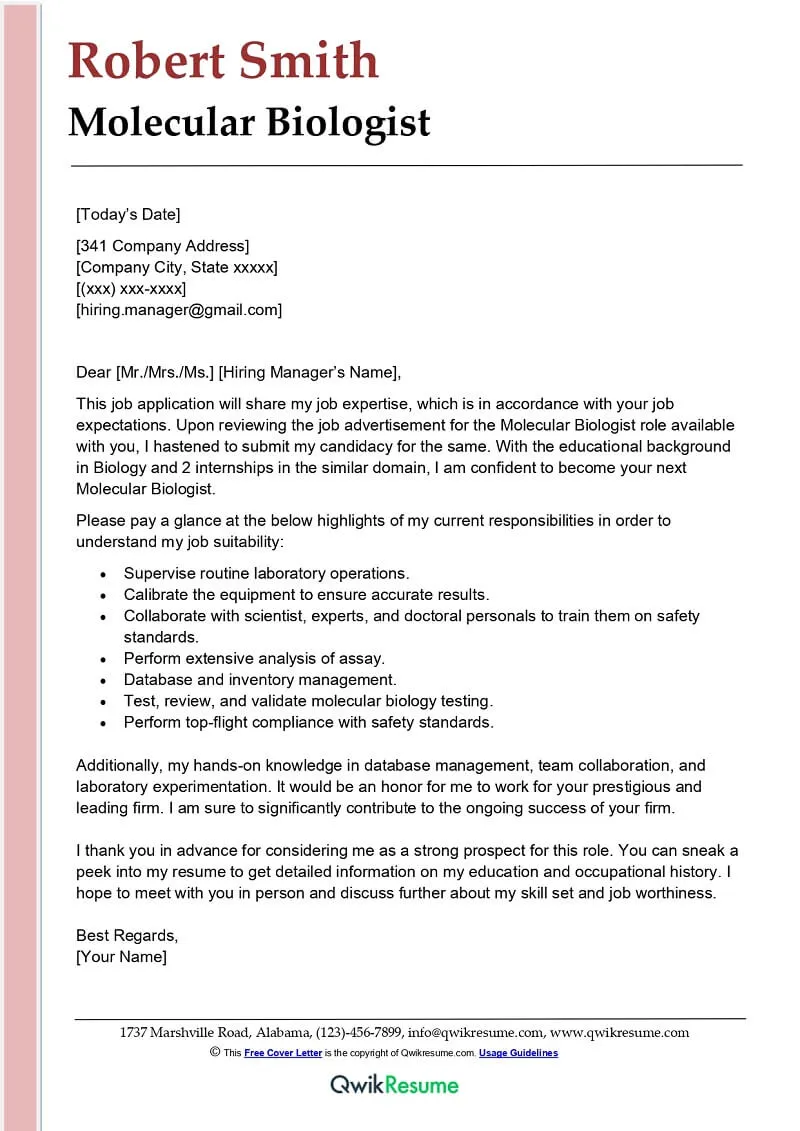
Your opening paragraph is your first opportunity to make a strong impression. Start with a concise and engaging statement that grabs the reader’s attention. State the specific position you are applying for and, briefly, how you learned about the opportunity. Immediately highlight your most relevant skills or experiences and express your enthusiasm for the role and the company. The opening paragraph should set the tone for the rest of your letter and encourage the hiring manager to continue reading. This is also where you can reference a mutual connection if applicable.
Highlighting Your Skills and Experience
The body of your cover letter is where you provide details about your qualifications. Focus on the skills and experiences most relevant to the job description. Provide specific examples to demonstrate your abilities and accomplishments. Use action verbs to describe your responsibilities and achievements. Whenever possible, quantify your achievements to show the impact of your work. Tailor your examples to match the requirements of the specific position, emphasizing how your skills align with the company’s needs.
Quantify Your Achievements
Whenever possible, quantify your achievements to demonstrate the impact of your work. Instead of saying you “managed research projects,” state that you “managed three research projects simultaneously, resulting in a 15% increase in project efficiency.” Use numbers, statistics, and metrics to provide concrete evidence of your accomplishments. This helps the hiring manager understand the value you can bring to the company and how you have made a difference in previous roles. Quantifying your achievements makes your cover letter more compelling and persuasive.
Tailoring Your Letter to the Job Description
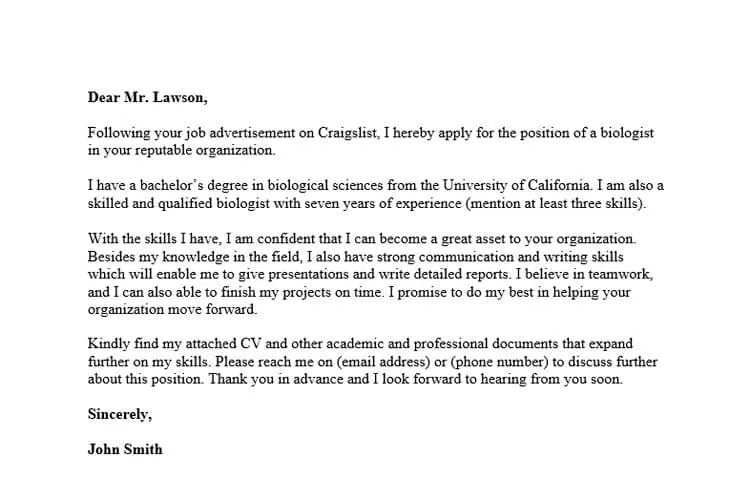
Carefully review the job description and tailor your cover letter to match its requirements. Identify the key skills, experiences, and qualifications the employer is seeking. Use the same keywords and phrases from the job description in your cover letter to demonstrate that you are a good fit for the role. Address each requirement in your letter, providing specific examples of how you have demonstrated those skills in previous roles. This shows that you have taken the time to understand the position and are confident in your ability to succeed.
Showcasing Your Passion for Biology
Your cover letter should reflect your genuine passion for biology. This is where you can demonstrate your enthusiasm for the field and the specific type of work the position entails. Share why you are drawn to this particular role and what excites you about the opportunity. Demonstrate your knowledge of the company’s mission, values, and recent achievements. This will show that you’ve done your homework and that you are genuinely interested in joining their team. Let your enthusiasm shine through in your writing.
Expressing Your Enthusiasm
Express your enthusiasm for the opportunity and the organization. Describe what specifically attracts you to the company and the role. Explain why you are excited about the possibility of contributing to their work. Demonstrate that you have researched the company and understand its mission, values, and recent achievements. This level of enthusiasm shows the hiring manager that you are genuinely interested in the position and are likely to be a dedicated and motivated employee.
Mentioning Your Career Goals
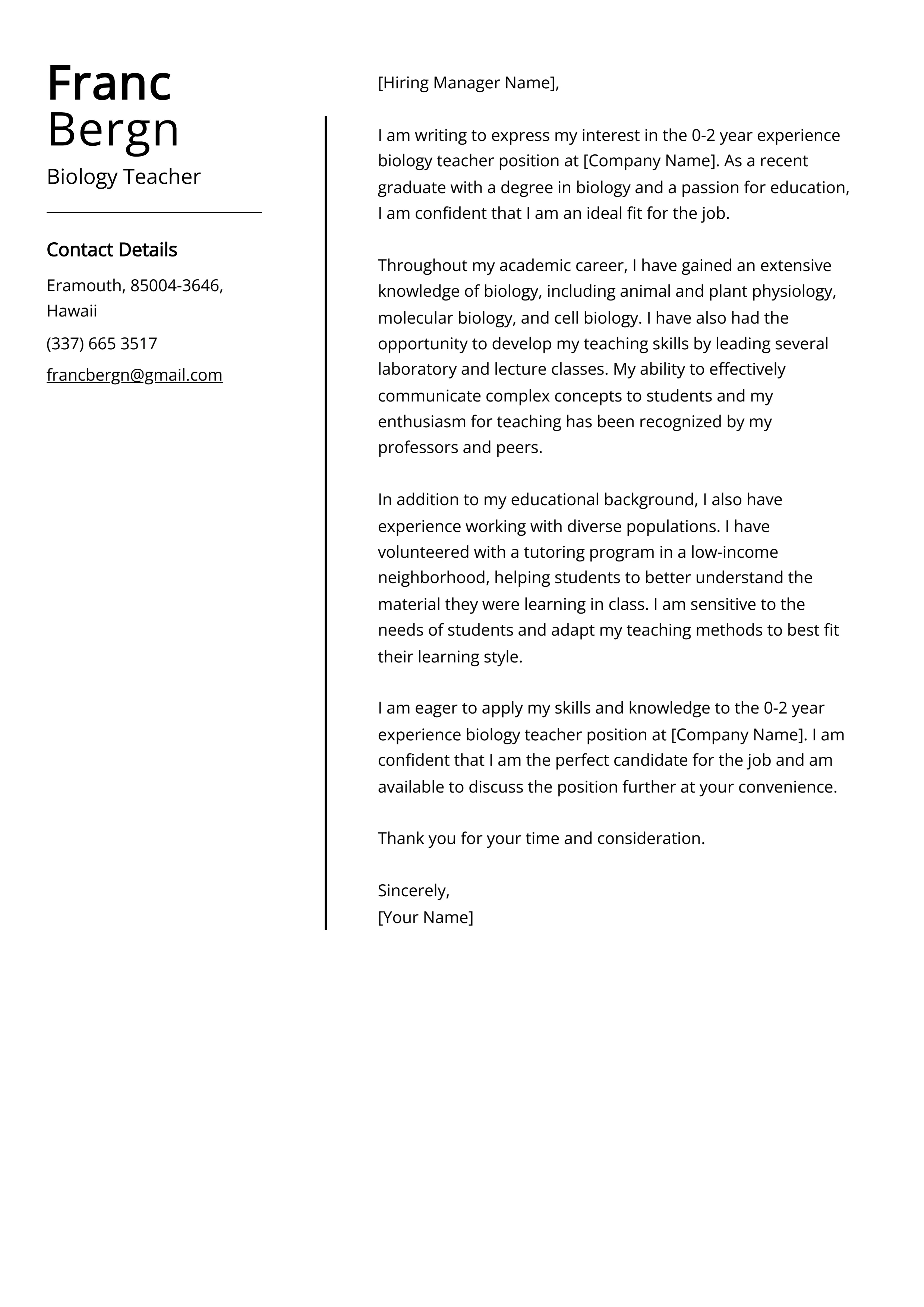
Briefly mention your career goals and how this position aligns with your aspirations. Explain how the role will help you develop your skills and advance your career in biology. Show that you are thinking about the long term and have a clear vision for your future in the field. This helps the hiring manager understand your motivations and assess whether you are a good fit for the company’s culture and goals. Aligning your goals with the company’s objectives demonstrates a shared vision for the future.
Formatting and Proofreading
The formatting and proofreading of your cover letter are just as important as the content. A well-formatted and error-free letter demonstrates professionalism and attention to detail. Make sure your letter is easy to read and visually appealing. Pay close attention to the layout, font, and overall presentation. Proofreading your cover letter is essential to catch any errors in grammar, spelling, and punctuation. Proofreading shows that you are thorough and care about the quality of your work.
Choosing the Right Font and Layout
Choose a professional and easy-to-read font, such as Times New Roman, Arial, or Calibri. Use a font size between 10 and 12 points. Maintain consistent formatting throughout the letter. Use single spacing within paragraphs and a double space between paragraphs. Use left alignment and avoid full justification. Keep the letter concise, typically one page long. A well-formatted letter is easier to read and makes a better impression on the hiring manager. Clear formatting helps to highlight your professionalism and attention to detail.
Proofreading for Errors
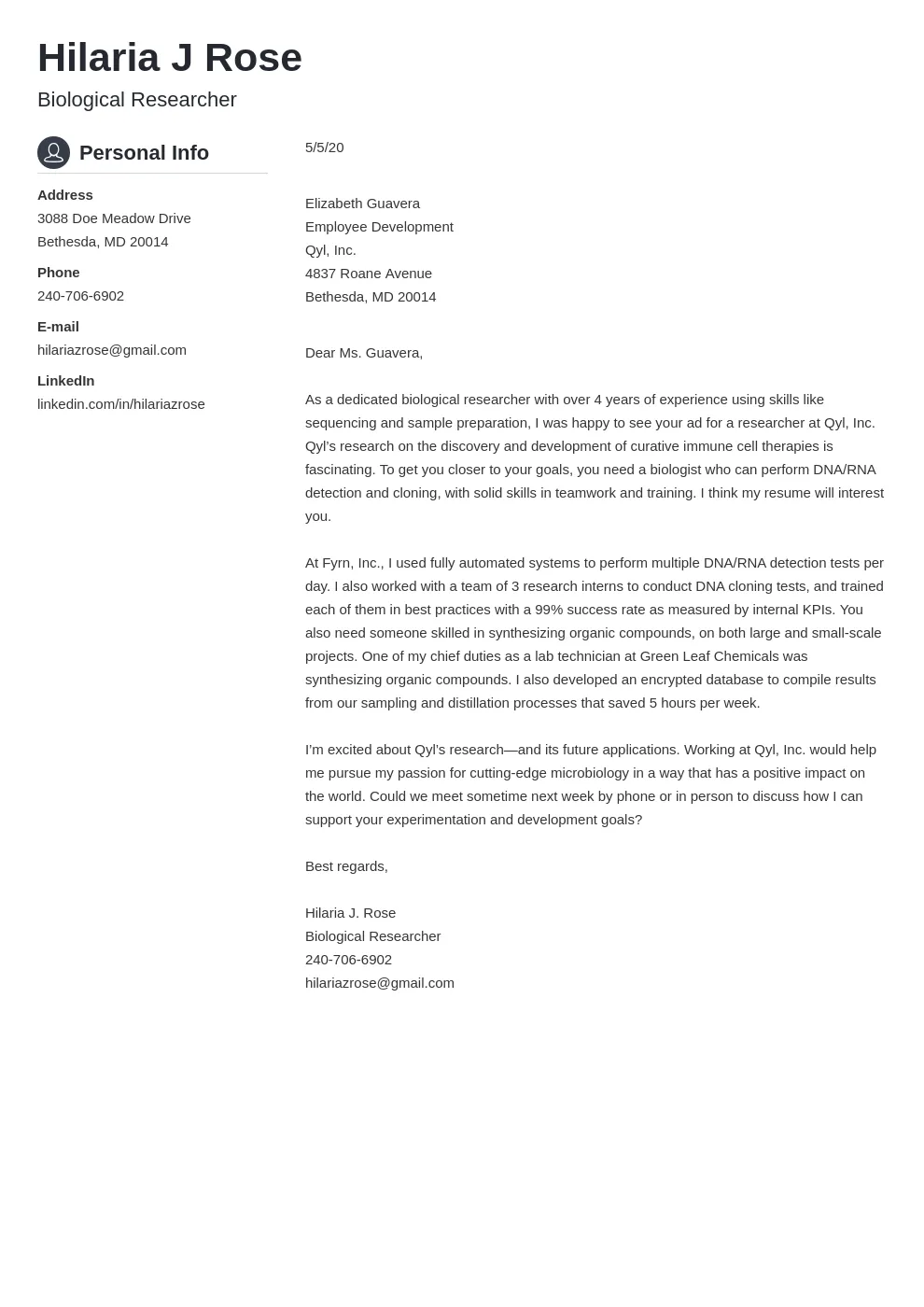
Proofread your cover letter carefully for any errors in grammar, spelling, punctuation, and sentence structure. Use a spell checker, but don’t rely on it entirely. Read the letter aloud to catch any awkward phrasing or inconsistencies. Have a friend, family member, or career counselor review your letter for feedback. A single error can undermine your credibility and make a negative impression. Ensure that your writing is clear, concise, and error-free to show that you are detail-oriented and committed to quality.
Closing Your Biology Cover Letter
The closing of your cover letter should be as impactful as the opening. The closing statement should reiterate your interest, thank the hiring manager for their time, and include a clear call to action. A professional and well-crafted closing leaves a lasting impression on the hiring manager, increasing your chances of securing an interview.
Expressing Gratitude
Express your gratitude for the hiring manager’s time and consideration. Thank them for reviewing your application and for the opportunity to be considered for the position. Show your appreciation for the time they have taken to read your cover letter and review your qualifications. This demonstrates professionalism and respect, leaving a positive impression on the hiring manager.
Call to Action
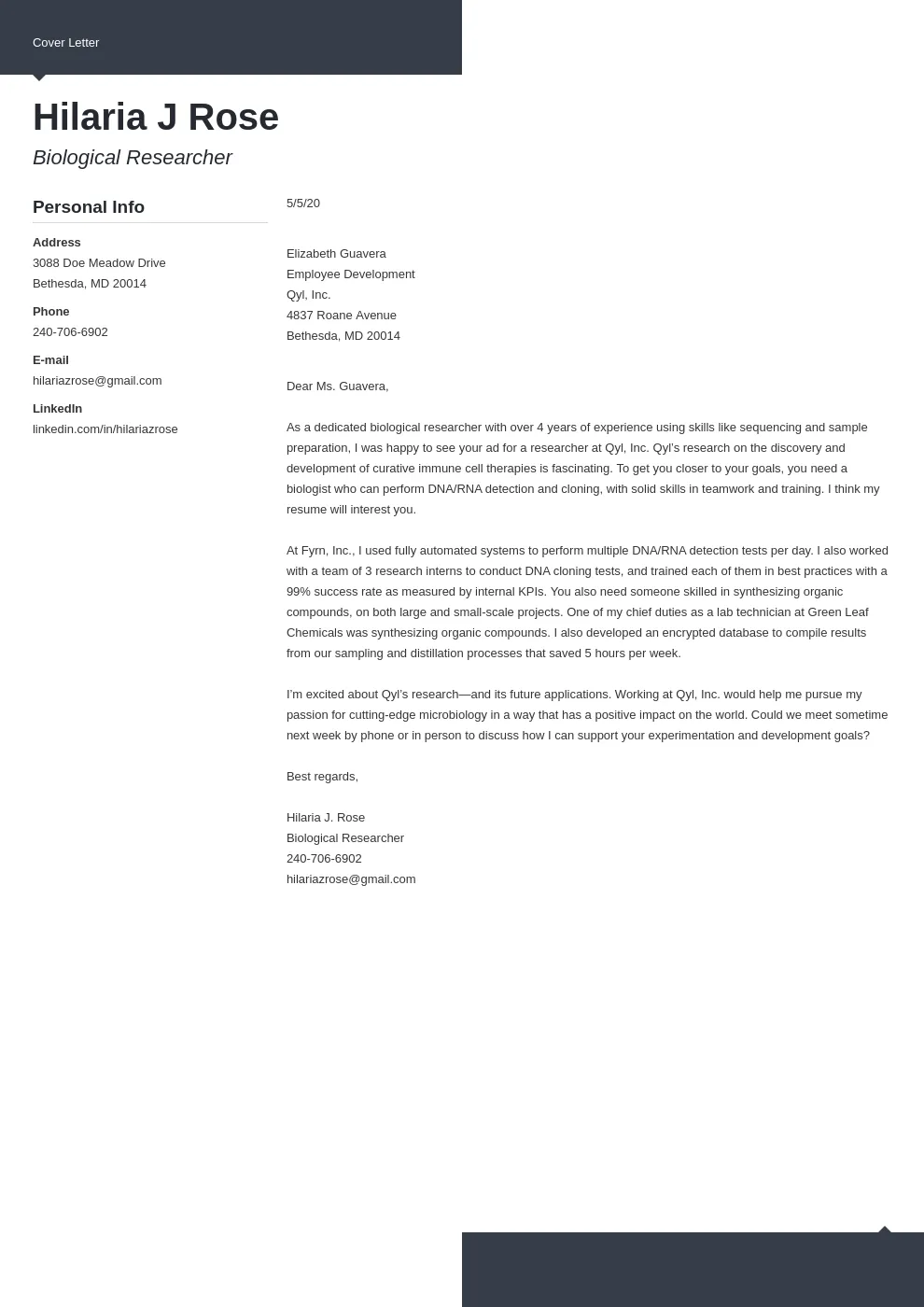
End your cover letter with a clear call to action. Express your eagerness to discuss your qualifications further and to schedule an interview. Provide your contact information again to make it easy for the hiring manager to reach you. State that you are available for an interview at their earliest convenience. This shows your enthusiasm for the position and encourages the hiring manager to take the next step in the hiring process. A strong call to action increases your chances of securing an interview and landing the job.
